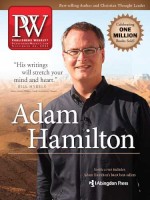Known for her bestselling investigative biographies, Kitty Kelley takes a new direction in Capturing Camelot: Stanley Tretick's Iconic Images of the Kennedys, which features more than 200 photos from Tretick, a close friend of Kelley’s who, upon his death in 1999, left her a treasure trove of memorabilia from his days covering the Kennedy White House.
John F. Kennedy’s Catholicism was considered a liability in 1960. How was he able to counter discrimination and become our first Catholic president?
JFK was pragmatic and shrewd. He made a made a masterful speech to the Greater Houston Ministerial Association in Houston, where he defined himself as an American and said that no church would ever dictate what his policies were. He said, “I do not speak for my church on public matters and the church does not speak for me. I am not the Catholic candidate for president. I am the Democratic Party’s candidate for president who happens also to be a Catholic.”
Fast forward to today, does it surprise you that religion still plays as large a role in American politics?
Religion has always been part of American politics but today we’re inundated with religion as well as religiosity. JFK cut a clear line between church and state, but it’s not that way now. Politicians have to embrace some kind of religion because it makes Americans uncomfortable if you don’t. Yet one like Mitt Romney’s probably needs more mainstream acceptance.
Is it correct to say your friend and colleague Stanley Tretick worked with JFK to help define the Kennedy White House depicted in Capturing Camelot?
It really was a working symbiosis. Stanley wanted access to exclusive Kennedy pictures and JFK wanted the best public image put forward. JFK was also very conscious of his Catholicism, so when Stanley got an exclusive to shoot the baptism of his son, John Jr., JFK insisted that the pictures of him and his wife holding the baby be against a blank wall. There would be no crucifixes, statues, or holy water fountains in the background.
What are your personal views regarding religion?
I was raised Irish Catholic and went to Holy Names Academy, an all-girl’s private Catholic school. I loved the nuns there and I love them to this day. JFK used to say the bishops and the cardinals were all Republicans, but the nuns were Democrats! I sort of believe that too. I am what is known as a benched Catholic and disillusioned by the church doctrine. I believe in things the Catholic Church does not believe in: divorce being one, and a women’s right to choose being another. I tend to place my own value in spirituality rather than religiosity. As St. Francis of Assisi once said, “Preach the gospel at all times, use words if necessary.” In other words, lead by good example and try to shut up.



 Volume 259
Issue 48
11/26/2012
Volume 259
Issue 48
11/26/2012





